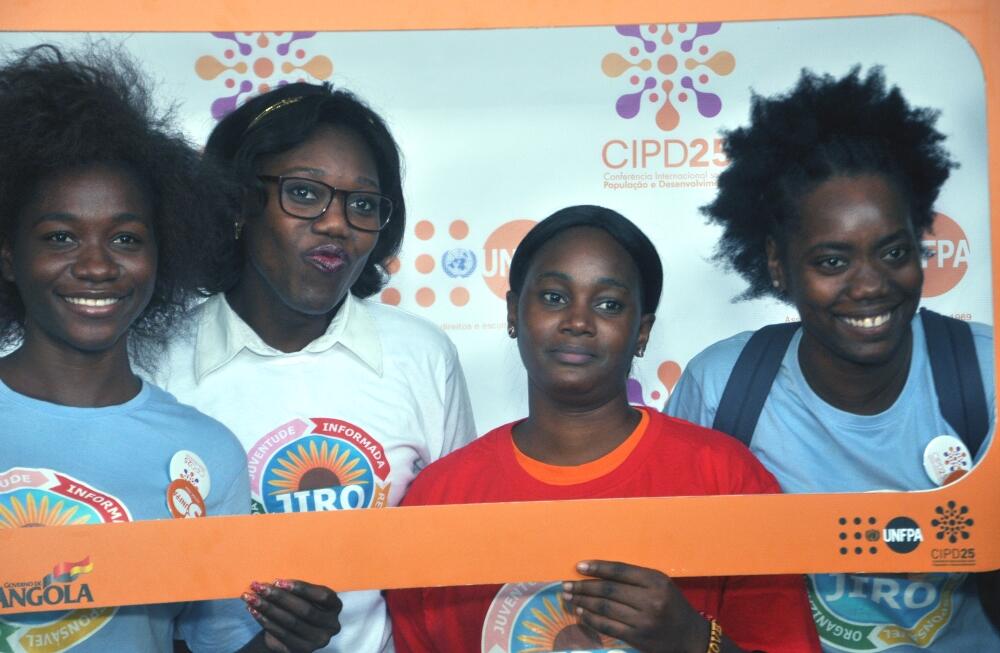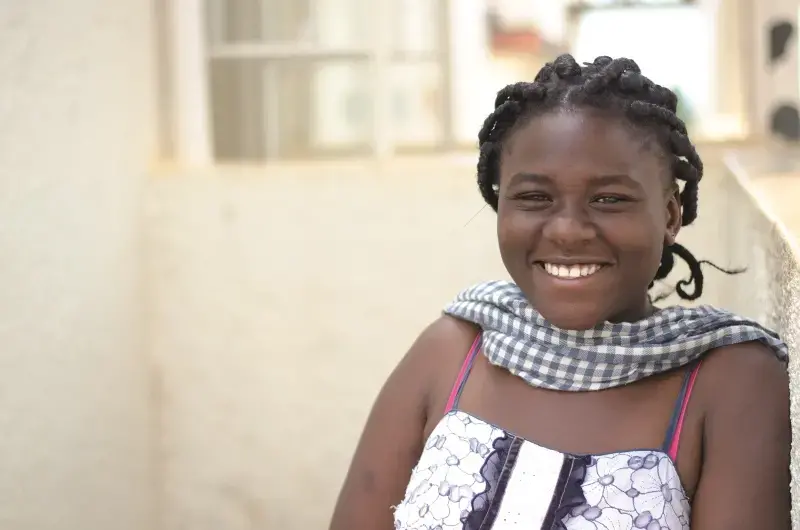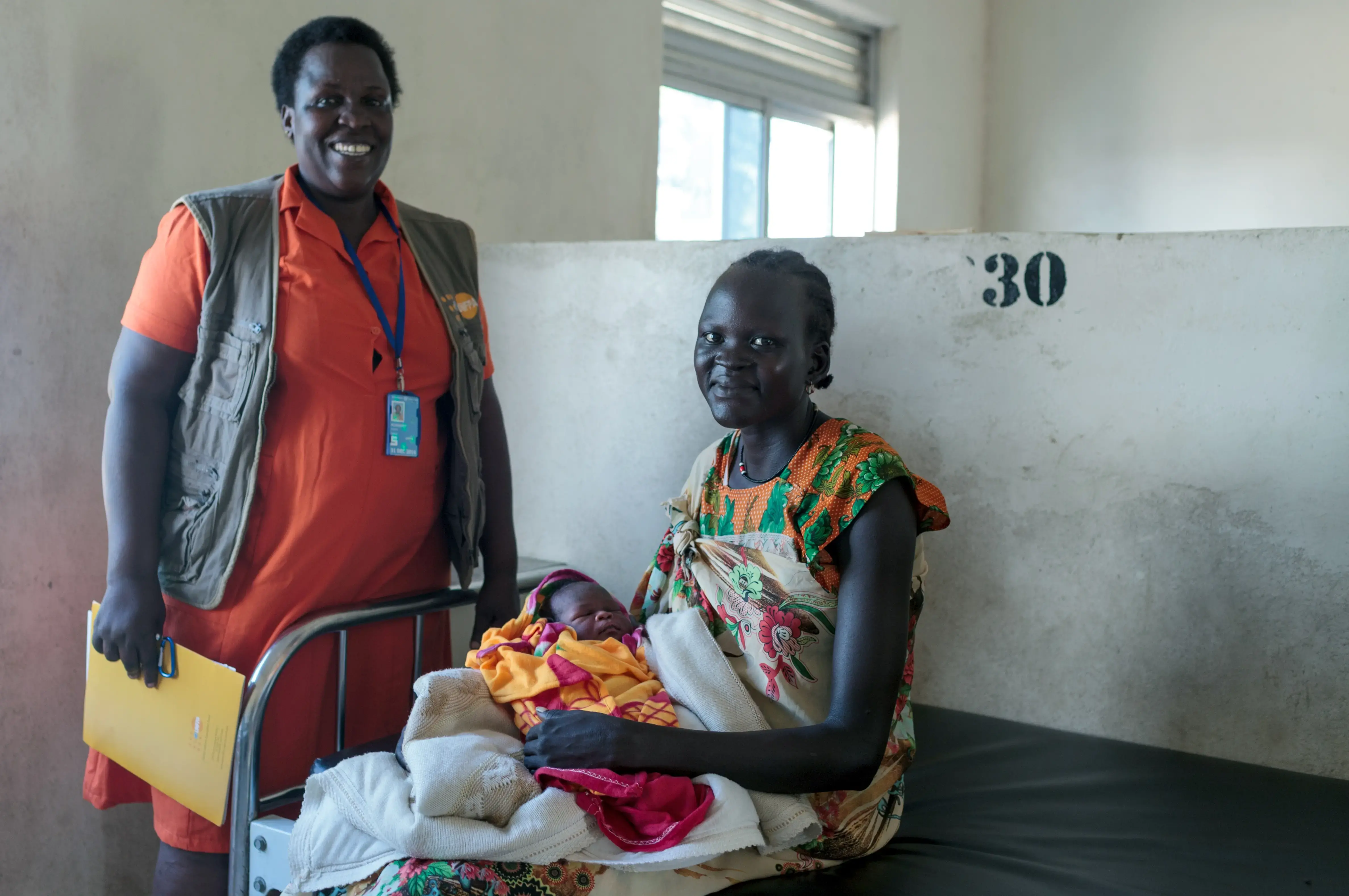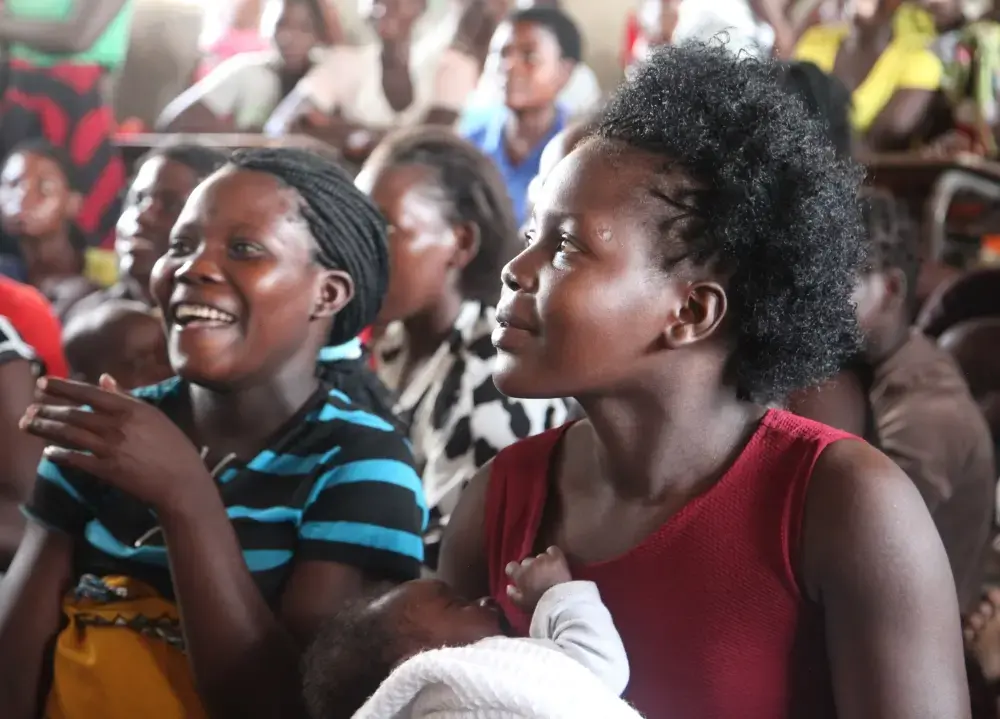LUANDA, Angola – Despite remarkable gains in ensuring rights and choices in Angola, there is still a long way to go, said UNFPA Representative in Angola, Florbela Fernandes. The struggle will continue until women and girls everywhere are healthy, able to exercise choices and have control over their futures.

there is still a long way to go, said UNFPA Representative in Angola,
Florbela Fernandes. © UNFPA Angola
She called for urgent action for those who remain left behind, to ensure that rights and choice become a reality for all.
Ms. Fernandes was speaking at the launch of UNFPA’s flagship State of World Population 2019 report at a high-level event attended by representatives from government, the National Assembly, the diplomatic corps, civil society, academia, private sector partners, and Angolan youth, as well as United Nations agency Representatives. The event marked Angola's joint celebration of UNFPA's 50th anniversary and the 25th anniversary of the historical International Conference on Population and Development (ICPD), held in Cairo in 1994.
The governments of Kenya and Denmark, together with UNFPA, are to host the Nairobi Summit in celebration of the 25th anniversary of the landmark ICPD and UNFPA's 50th anniversary, in Kenya from 12-14 November. At this global event, governments, donors, civil society organizations and the private sector will strengthen commitments to the principles and objectives of the ICPD Programme of Action (PoA).
What's changed for women and girls since 1994?

Andrade and Luis Samacumbi on the panel discussion.
© UNFPA Angola
The event included a discussion of ‘What’s Changed?’ since the inaugural ICPD in 1994, in a dialogue among three generations of Angolan women, who looked at the scope, challenges and opportunities in the exercise of rights and choices.
The global reproductive rights movement, which began in the 1960s, transformed the lives of hundreds of millions of women by ensuring they have the information and means to exert control over their own bodies and determine their own futures. However, despite progress in the past 50 years since the creation of UNFPA, the United Nations sexual and reproductive health agency, there is still a long way to go until all people in the world can claim their rights and freedom to decide. The State of the World Population 2019 report states that choices and rights remain a challenge for many women, and that many barriers remain in place.
Three strong Angolan women with a history of overcoming obstacles to achieving their dreams, while raising their families and contributing to the development of society, took part in the panel discussion.
Maria Otília Andrade, who has two children and five grandchildren, has a degree in administration but since 1998 has worked as a fisherwoman, which is her great passion. She is the only Angolan woman to command a deep-sea fishing vessel. She stressed the importance of sexual education, so that girls can make the best choices in life.
When my first menstruation came at the age of 14, my godfather offered me a book entitled Everything a woman should know from adolescence to childbirth. This book was my life.
“I was raised by my parents and godparents. When my first menstruation came at the age of 14, my godfather offered me a book entitled Everything a woman should know from adolescence to childbirth. This book was my life; everything I know and taught to my children, I learned from it.”
Anica António Filho learned perseverance while studying clinical psychology and nursing: “There were several obstacles to get[ting] a degree. I volunteered and it was through dedication and commitment that I became a professional. My desire to learn has always been great and my desire has always been to save lives.”
She advised girls and young women to follow their dreams, set priorities and, if they have already have an active sex life, use family planning to avoid unplanned pregnancies.
Silvia Rodrigues, 25, graduated in Portuguese Language and Literature and although she could not find a job in this field, she chose not to remain unemployed but instead to become an entrepreneur. In 2017, she created her own design studio, and today she helps other young people in her community to get ahead.





